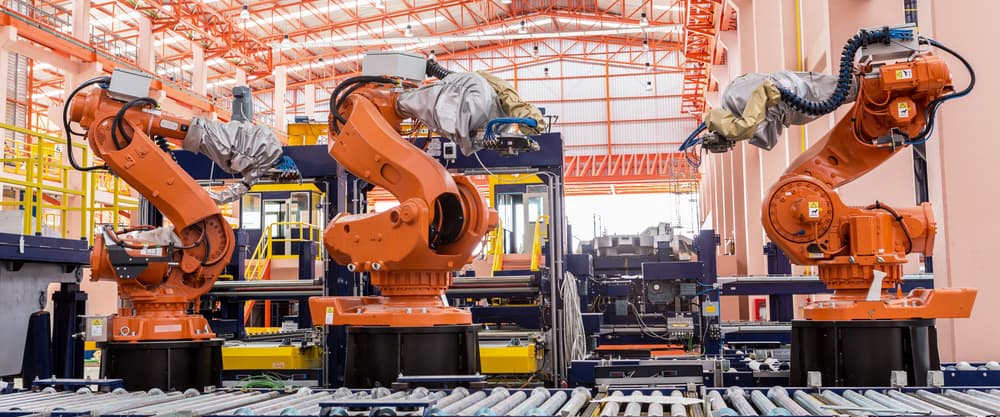
© SasinTipchai | Shutterstock
By Sandra Ortellado, 2018 Science Communication Fellow
Science fiction depicts the future with a combination of fascination and fear. While artificial intelligence (AI) could take us beyond the limits of human error, dystopic scenes of world domination reveal our greatest fear: that humans are no match for machines, especially in the job market. But in the so-called fourth industrial revolution, often known as Industry 4.0, the line between future and fiction is a thread of reality.
Over the next 13 years, impending automation could force as many as 70 million workers in the US to find another way to make money. The role of technology is not only growing but also demanding a completely new way of thinking about the work we do and our impact on society because of it.
Rather than focusing on which jobs will disappear because of technological disruption, we could be identifying the most resilient tasks within jobs, says J. Luke Irwin, 2018 YSSP participant. His research in the IIASA World Population program uses a role- and task-based analysis to investigate professions that will be most resilient to technological disruption, with the hope of guiding workforce development policy and training programs.
“We are getting better and better at programming algorithms for machines to do things that we thought were really only in the realm of humans,” says Irwin. “The amount of disruption that’s going to happen to the work industry in the next ten years is really going to impact everyone.”
However, the fear and instability created by the potential disruption elicit chaos, and the response is hard to organize into constructive action. While the resources remain untapped, creativity and imagination are wasted on speculation instead of preparation.
“I couldn’t stand that there’s all this great evidence-based work out there about how we can improve people’s lives and no one is using it,” said Irwin, “I’m trying to align a lot of research and put it in a place where you can compare it and make it more useful and more transferable between the people who would be talking about this: educators, policymakers, employers, and anybody in the workforce.”
Using a German dataset with vocational training as well as time and task information, Irwin will break down jobs into the specific cognitive and physical skills involved and rank the durability of each skill.
Based on the identified jobs and skills, Irwin will go on to draw connections between labor-force capabilities and education policies. His goal is to scale the findings of the most resilient skills to the German labor system so that policymakers and academic institutions can retrain currently displaced workforces and reimagine the future of human work.
After all, while about half the duties workers currently handle could be automated, Mckinsey Global Institute suggests that less than 5% of occupations could be entirely taken over by computers. The future of predictable, repetitive, and purely quantitative work may be threatened, but automation could also open the door for occupations we can’t even imagine yet.
“I think people are amazing and that they have a lot more potential than we are currently capable of fulfilling,” says Irwin.
The World Economic Forum estimates that 65% of children today will end up in careers that don’t even exist yet. For now, an increasingly self-employed millennial generation works insecure, unprotected jobs. The new gig economy, characterized by temporary contracted positions, offers independence but also instability in the labor market.
Without stable work, people lose a sense of security, and that can be dangerous for a policy system that isn’t built to handle uncertainty.
The last industrial revolution caused two or three generations of people to be thrown into poverty and lose everything they had because it was all tied into their job, recalls Irwin.
“Everything gets bad when things are uncertain,” says Irwin, “And this is a very uncertain time. We need to have a better idea of what’s coming so we can actually make some change.”
Irwin, who earned his Master’s in Public Health in 2014, wants his work to have a preventative focus, trying to find those things that not enough people are talking about, but have the potential to make a huge impact on public well-being.
“Especially in the United States, where I live, we’re so tied up with our jobs—it seems like it’s over half our identity,” says Irwin, “We live to work in America.”
In a place like the US, where a job is not only a source of income, but also an identity and a health factor, Irwin’s research offers hope that technological disruption can foster opportunity instead of chaos.
Note: This article gives the views of the authors, and not the position of the Nexus blog, nor of the International Institute for Applied Systems Analysis.

You must be logged in to post a comment.